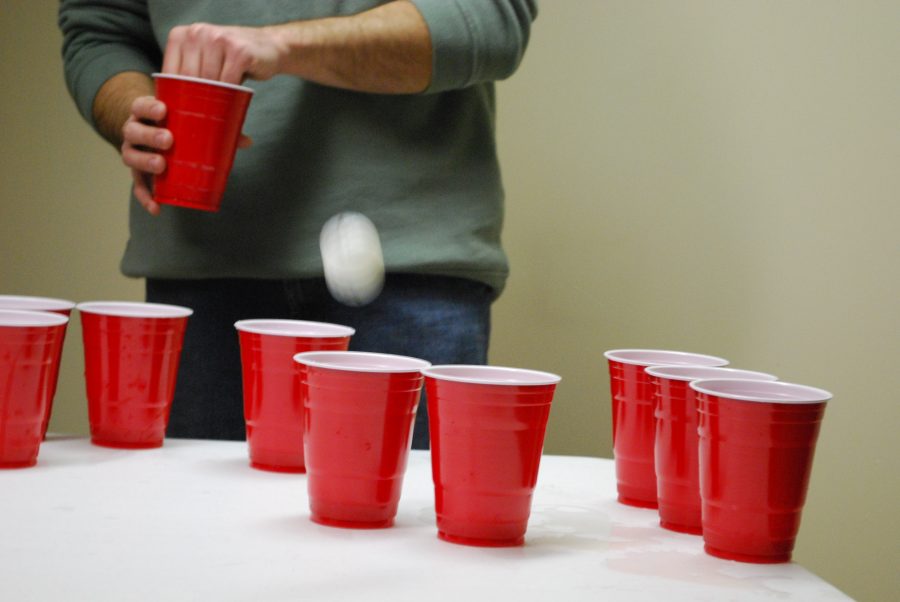Recruitment by fraternities at NYU was recently suspended for the Spring 2020 semester due to reports of hazing that have led to the suspension or banning of several frats in the last few semesters.
Despite this action by the Interfraternity Council, public information is lacking on what, when and how hazing occurred. WSN spoke to current and former members of fraternities, and other students, in hopes of gaining more information on the matter.
The recruitment period for Spring 2020, usually 16 weeks long, will now be confined to the month of December, according to GLS sophomore and Zeta Beta Tau Spring Rush Chair Xavier Dreux. Dreux said, due to the shorter and abnormal rushing period, fraternities will seek out students they already know.
“Our last legal window to officially obtain these new members is this December, when it would normally be the beginning of [spring] semester,” Dreux said. “Because we don’t have that luxury of time, we’re gonna try to reach out more to people that brothers think would already be a good fit and do some more targeted recruiting.”
Dreux said his own recruitment experience began at Club Fest after he was approached by ZBT members. In proceeding weeks, he attended around four hours of interviews and was then contacted by ZBT officials who offered him a bid, after which he was officially initiated.
“[Recruitment] events range in nature from interviews to playing pool, but all events are geared towards trying to help prospective new members find a brotherhood,” the NYU IFC website reads.
GLS sophomore Alex Ramirez underwent the recruitment process for ZBT, but later chose to not stay on with the fraternity because he felt he did not connect with the other brothers.
Ramirez said while most of the interview questions attempted to gauge the character of prospective fraternity members, some questions asked were lewd.
“If they actually liked you, they would tell you to come to these little gatherings before the interview,” Ramirez said. “They mixed in a bunch of stupid questions like ‘who has a bigger d-ck’ and all that.”
According to the NYU website, 9 of 13 NYU Interfraternity Council fraternities are currently under some form of suspension or probation — with Delta Phi permanently banned from the university — all citing hazing allegations.
This leaves four on-campus fraternities currently listed as active, some of which have also been accused of hazing and suspended within the last five years.
“There were a few instances, from my understanding, in previous years of hazing on campus,” Dreux said. “Last spring, Zeta Psi got put under national investigation for hazing but it was dropped by their nationals.”
Dreux did not mention that his own fraternity, ZBT, just finished a probationary period this fall after facing hazing charges this fall, according to NYU’s website. The website does not specify when or how the incidents occurred.
Ramirez said he knew about the probation prior to the recruitment process but was never told the details.
“[The probation] is also why I was very careful with joining it,” Ramirez said. “I don’t know the reason, and they never spoke to us about it.”
Suspension results in a brief loss of recognition and endorsement from the university and bars fraternities from recruitment. However, it does not necessarily prevent fraternities from operating off-campus.
“We note that there are some formerly recognized chapters that have continued to operate without university endorsement, oversight or approval and are thus considered unrecognized chapters,” the NYU website reads. “This situation concerns us because we do not have confidence that unrecognized chapters operate with the same diligence to promote student growth and development.”
Fraternities operating outside of NYU’s administrative scope are not necessarily unknown to the student body.
“A lot of frats that get kicked off still remain ‘active’ in secret, they just don’t let NYU or their national board know,” Tisch sophomore and alpha Kappa Delta Phi member Jamie Zhang said in a text to WSN.
Cases at NYU represent only a fraction of a much larger nationwide fraternity hazing epidemic. In a 2008 survey performed by University of Maine researchers Elizabeth Allan and Mary Madden, 73% of students involved with fraternities or sororities reported being hazed as part of their initiation.
Those surveyed described the hazing they experienced as including forced alcohol consumption, public humiliation, sex acts and forced sleep deprivation.
“It creates an unhealthy culture,“ Gallatin junior Clare Griffin said. “Hazing is obviously terrible and I personally do not understand why anyone would go through those processes to be in a frat.”
According to the book “Hazing” by Hank Nuwer, at least one student per year has died a hazing-related death, on average, from 1959-2019, with a majority of these deaths occurring in male college fraternities.
Last week, a Cornell first-year was found at the bottom of a gorge following an off-campus Pi Kappa Psi party. The cause of his death remains unknown, although authorities speculate that it is related to alcohol consumption at the fraternity party.
“I see the psychological justification behind hazing, because that’s kind of how you create the exclusivity,” CAS sophomore Johnnie Yu said. “On the larger part it really does damage, it’s definitely harmful to individuals.”
Members of the IFC Executive Board and Center for Student Life Assistant Director David Gonzalez did not respond to a request for comment by time of publication.
A version of this article appeared in the Monday, November 20, 2019 print edition. Email Lisa Cochran at [email protected].
























































































































































